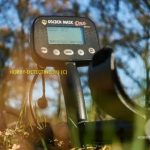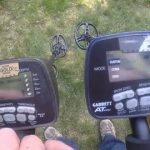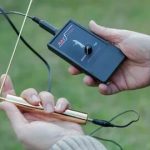Metal detectors for gold have become a popular tool for treasure hunters and prospectors alike. With the right equipment, uncovering hidden treasures can become an exciting and rewarding endeavor. In this guide, we will explore the best metal detectors for gold and provide valuable insights into the features and capabilities that make them stand out. Whether you are a seasoned prospector or a newbie in the world of treasure hunting, finding the right metal detector for gold can significantly enhance your chances of striking it rich.
Uncovering Hidden Treasures: The Best Metal Detectors for Gold is a comprehensive guide that discusses the top metal detectors specifically designed for finding gold. It provides detailed information on the features, capabilities, and effectiveness of each metal detector, allowing readers to make informed decisions when it comes to purchasing the best equipment for their gold prospecting needs. The guide also includes tips and techniques for using metal detectors to maximize the chances of uncovering gold, making it a valuable resource for both beginners and experienced prospectors.
The Best Metal Detectors for Finding Gold
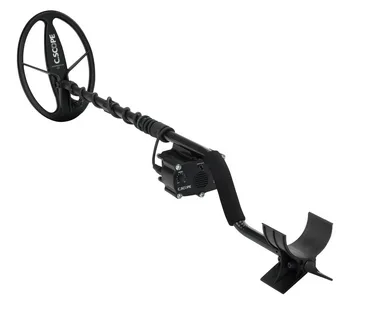
Sure, some of the best metal detectors for finding gold are the Minelab GPZ 7000, Garrett ATX, and Fisher Gold Bug. These detectors are specifically designed to hone in on small gold nuggets and flakes in various types of soil and mineralized ground. They often have advanced features such as high sensitivity, fine-tuned discrimination, and specialized search coils to ensure optimal performance in gold prospecting environments. These detectors are known for their ability to detect gold at greater depths and in challenging conditions, making them popular choices among serious gold hunters.
How to Choose the Right Metal Detector for Gold
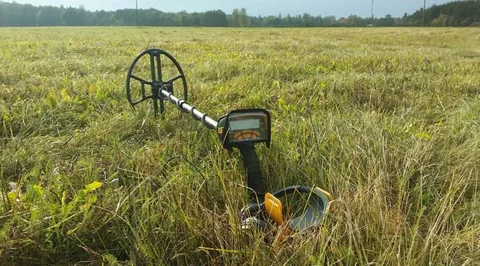
When choosing a metal detector specifically for gold prospecting, it’s important to consider the frequency and sensitivity of the detector. Look for a metal detector with a high frequency (at least 18 kHz) as gold is best detected at higher frequencies. Additionally, choose a detector with high sensitivity to small gold nuggets and flakes. Ground balance and discrimination features are also important to filter out unwanted metals and minerals. Finally, consider the weight and portability of the metal detector, as gold prospecting often involves traveling to remote locations.
Tips and Tricks for Using Metal Detectors to Find Gold

Here are some tips and tricks for using metal detectors to find gold:
1. Research potential gold hunting areas to ensure they are accessible and legally permissible for metal detecting.
2. Use metal detectors with higher frequency settings, as gold is more easily detected at higher frequencies.
3. Ground balance your metal detector to account for mineralization in the soil, which can interfere with gold detection.
4. Utilize a smaller search coil to better pinpoint smaller gold nuggets or flakes.
5. Slow down and sweep your metal detector in a methodical, overlapping pattern to ensure thorough coverage of the area.
6. Use headphones to better hear the subtle signals indicating the presence of gold.
7. Consider using a handheld pinpointer to more accurately locate gold targets once the metal detector has indicated their presence.
By following these tips and tricks, you can improve your chances of successfully using a metal detector to find gold.
Maximizing Your Gold Finds with Metal Detectors
See also: gold detector machine

Metal detectors can be an effective tool for maximizing your gold finds. To increase your chances of success, it’s important to choose the right type of metal detector for gold prospecting. Look for models that are specifically designed to detect small gold nuggets and flakes.
It’s also important to do your research and choose the right location for prospecting. Look for areas with a history of gold mining or geological features that are known to contain gold deposits. Additionally, consider joining a local prospecting club or seeking guidance from experienced prospectors to learn about the best places to search for gold.
When using a metal detector for gold prospecting, it’s important to understand how to properly ground balance and set the detector’s sensitivity. This will help you detect small gold targets while reducing interference from mineralized soil or other metal objects in the area.
Finally, it’s essential to practice patience and persistence when prospecting for gold with a metal detector. Success often requires spending a significant amount of time searching, and it’s important to remain dedicated to the process.
By choosing the right equipment, researching prime locations, and mastering the techniques of gold prospecting with a metal detector, you can increase your chances of maximizing your gold finds.
The Ultimate Guide to Metal Detecting for Gold
The Ultimate Guide to Metal Detecting for Gold is a comprehensive resource for individuals looking to successfully find gold using metal detectors. This guide covers everything from choosing the right equipment and understanding the geology of gold deposits to tips for maximizing your chances of finding gold. It also includes information on the most productive locations for gold hunting, techniques for effective metal detecting, and advice for properly identifying and recovering gold nuggets. Whether you’re a beginner or experienced detectorist, this guide provides valuable insights and techniques for finding gold with a metal detector.
Uncovering Buried Treasure: Gold Metal Detecting Techniques
Uncovering Buried Treasure: Gold Metal Detecting Techniques is a comprehensive guide to using metal detectors to find gold. It covers various techniques such as ground balancing, target identification, and proper equipment setup. The book also includes tips on where to search for gold and how to accurately locate and retrieve buried treasure. With detailed instructions and practical advice, this book is a valuable resource for anyone interested in metal detecting for gold.
Pros and Cons of Different Metal Detectors for Gold
Several factors to consider when evaluating different metal detectors for gold include the detector’s sensitivity, discrimination capabilities, ground balance adjustment, and frequency. Each of these characteristics can affect a detector’s performance in different ways.
Higher sensitivity is desirable for detecting smaller gold nuggets, but it also increases the likelihood of picking up unwanted signals from nearby objects. Discrimination capabilities allow a detector to differentiate between various types of metal, which can be useful for ignoring common junk items. However, some gold detectors may have limited discrimination to ensure they don’t miss potential targets.
Adjustable ground balance is important for successfully detecting gold in different soil conditions, as it helps minimize interference from mineralization. Additionally, the frequency of a metal detector can impact its ability to detect certain types of gold, with lower frequencies being better for larger nuggets and higher frequencies for smaller or deeper targets.
While there is no one-size-fits-all answer to the best metal detector for gold, considering these factors can help narrow down the options and find the best fit for individual needs.
Gold Rush: The Latest Advancements in Metal Detector Technology
Gold Rush is a technology-focused event showcasing the latest advancements in metal detector technology. The event highlights the newest and most innovative metal detectors on the market, along with the various features and capabilities they offer. Attendees have the opportunity to learn about cutting-edge technologies, explore different detectors, and gain insights into how these advancements can improve their metal detecting experiences. The event not only provides a platform for industry leaders to present their latest products, but also offers hands-on experiences and demonstrations for attendees to better understand the capabilities of these advanced metal detectors.
Common Mistakes to Avoid When Metal Detecting for Gold
1. Not researching the area: One common mistake is not researching the area where you plan to metal detect for gold. It’s important to know the history of the location and whether there have been any gold discoveries in the past.
2. Using the wrong metal detector: Using a metal detector that is not specifically designed for gold prospecting can be a big mistake. Make sure to use a detector that is sensitive to small gold nuggets and flakes.
3. Not digging deep enough: Gold can be found at deeper depths, so not digging deep enough when you get a signal can cause you to miss out on potential finds.
4. Neglecting to properly ground balance: Not properly ground balancing your metal detector can result in false signals and missed opportunities to detect valuable gold items.
5. Not obtaining permission: It’s important to always obtain permission before metal detecting on private property. Not doing so can lead to legal issues and landowner disputes.
6. Ignoring environmental considerations: Failing to consider environmental regulations and restrictions can lead to fines and negative impacts on the local ecosystem.
7. Lack of patience: Metal detecting for gold can be a slow and painstaking process. Patience is crucial, as rushing through a search can cause you to miss out on potential finds.
8. Not maintaining your equipment: Not properly maintaining and calibrating your equipment can result in missed signals and reduced performance while metal detecting for gold. Regular upkeep is essential for success.
From Hobbyist to Treasure Hunter: Metal Detecting for Gold Success Stories
“From Hobbyist to Treasure Hunter: Metal Detecting for Gold Success Stories” is a book that chronicles the experiences of individuals who have successfully found gold through metal detecting. The book offers insights into the techniques and strategies used by these individuals, as well as the challenges they faced and how they overcame them. It serves as a guide for aspiring treasure hunters looking to improve their skills and increase their chances of finding gold. The stories shared in the book can provide inspiration and motivation for those interested in pursuing metal detecting as a hobby or potential source of income.



